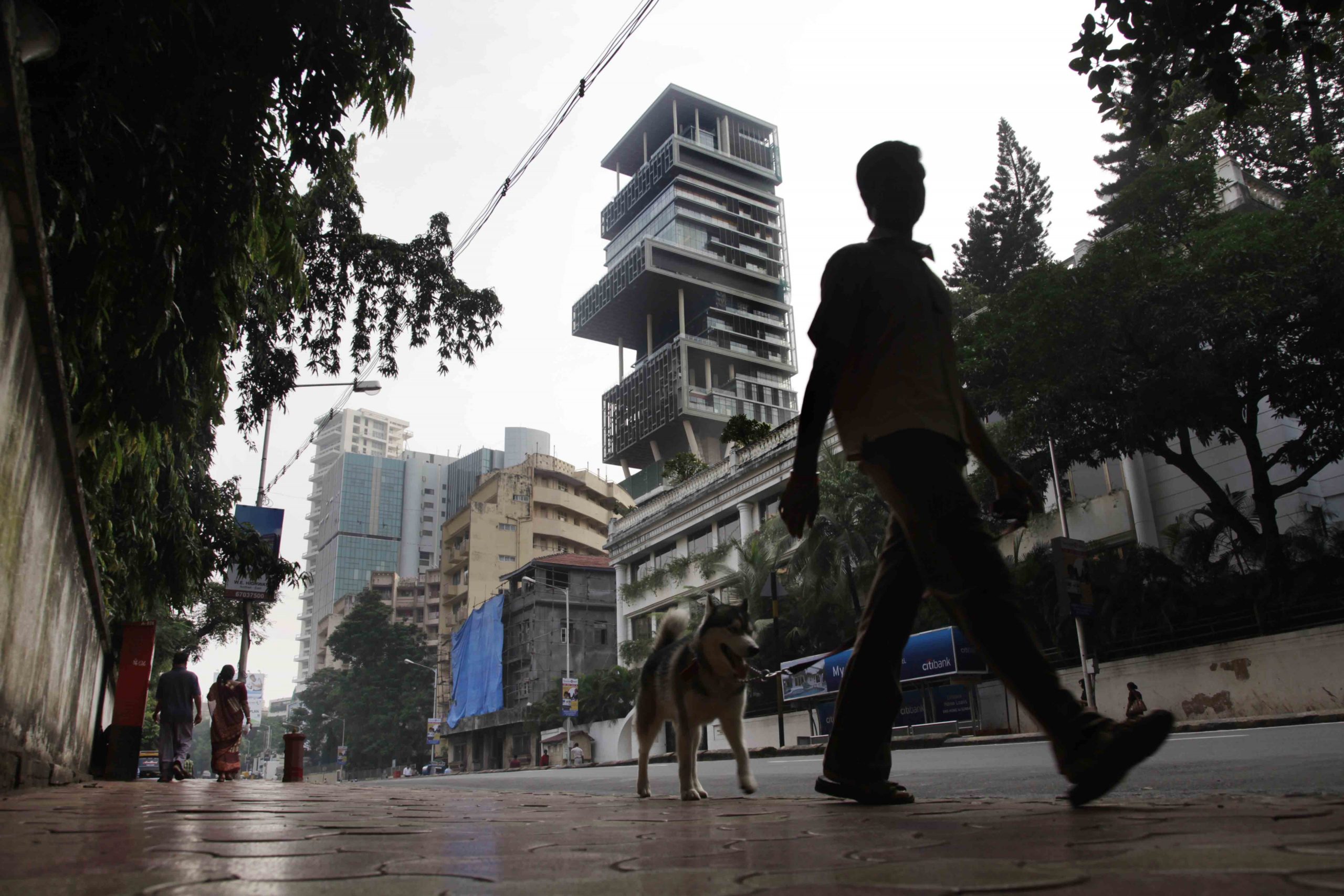Survivalism of the rich
The solution to global warming and other threats to survival is not to weatherproof the already privileged, but to fight for democratic and egalitarian politics that protect us all.
Author:
7 February 2019

Pretoria-born billionaire Elon Musk has long been fêted by the media as a genius who will supposedly save humanity with his ambitious schemes for electric cars and space exploration. But his unstable behaviour and online feuds increasingly tarnished this image last year. This included an instance in which Tesla investors subpoenaed him for apparently revealing business plans on Twitter while under the influence of LSD. Had Musk finally fallen victim to the libertine, pro-drug ethos of Silicon Valley?
More seriously, workers at his Tesla factories spoke out about a culture of intimidation and union-busting. By the end of the year, science magazine Popular Mechanics felt obliged to publish a cover story titled “In Defence of Elon Musk”, a fawning set of essays defending their hero.
Despite some bad press, Musk remains publicly committed to his grand plan of settling on Mars, with his SpaceX company proposing to send colonists to the surface of the Red Planet by the end of the next decade. The scheme is motivated by Musk’s conviction that an apocalyptic conflagration of global warming, rogue artificial intelligence and nuclear war will wreck human civilisation on this planet. In his words, “there is likely to be another dark ages”. His belief is that the Martian colonists will survive this destruction and eventually return to rebuild a shattered Earth.
Related article:
But it’s not all gloom and doom, with Musk promising that getting to Mars will lead to “an explosion of entrepreneurial activity” for the lucky colonists. But Musk also loves to stress the potential hardships of his settlement, saying “there’s a good chance you die there. We think you can come back but we’re not sure. Now, does that sound like an escape hatch for rich people?”
The last sentence is revealing as, despite Musk’s protestations, the rich are indeed trying to build just such escape hatches. A 2017 New Yorker profile, “Doomsday prep for the super rich” by Evan Osnos, revealed that wealthy Americans are purchasing luxury converted missile silos and remote tracts of land on which to comfortably ride out ecological and economic collapse. Last year, an investigation in The Guardian by Mark O’ Connell showed how paranoid plutocrats, such as Musk’s former Paypal partner and current Donald Trump-backer Peter Thiel, are fixated on New Zealand, believing the country to be geographically isolated from disaster.
Other proposals include the creation of microstates and man-made islands in international waters, where the elite can go about their business without laws and regulations. In his book Vertical, urban theorist Stephen Graham highlights how this elite exit is already taking place in cities across the world. The super-rich are flocking towards gated towers and high-security condos, effectively “vertical gated communities” in the sky. In Mumbai, the family of tycoon Mukesh Ambani live in a 27-floor luxury tower that looms over a landscape of poverty and squalor.
Apocalyptic paranoia
In a widely distributed essay from last year, media theorist Douglas Rushkoff says the highest echelons of the tech industry are convinced that with global calamity pending, they are entitled to leave the rest of humanity behind. Alongside hi-tech fortresses and off-world colonies, Silicon Valley futurists rhapsodise about genetic enhancements and creating artificial brains to ensure that the 1% cheat not only the apocalypse, but death itself.
But this brave new, post-human world will retain its class system. Rushkoff cites a chief executive at a Futurist conference asking the question on everyone’s minds: How do I maintain control of my security forces after the event?
Related article:
Much of this apocalyptic paranoia could be seen as the standard narcissism of the rich. Throughout history, the powerful have embarked on megalomaniacal projects that celebrate their wealth and protect them from the lower orders. Egypt has the pyramids, France has Versailles and South Africa has Nkandla.
In an era of environmental crisis, economic instability and a general sense of inchoate social anger, it is to be expected that apocalyptic ideas grab people’s imaginations. The emergence of millenarian groups, who believe the end is nigh and that only a prepared elect will survive, is a recurring historical motif in times of rapid social change.
In the 16th century, John of Leiden seized control of the city of Munster in Germany, declaring it a new paradise where sin had been abolished and establishing a short-lived theocracy based on enforced polygamy and public executions. In South African history, the cattle killings associated with Nongqawuse and the Israelites movement of Enoch Mgijima are examples of people who genuinely believed Armageddon was imminent.
Humanity blunders on
Until the 20th century, most apocalyptic narratives were religious and saw Judgement Day as a supernatural intervention. But the creation of nuclear and other weapons of mass destruction gave a secular tone to apocalyptic ideas – now humanity had the power to wipe itself out, without the need for divine retribution. Fortunately, prophecies of Armageddon have historically failed and humanity continues blundering on.
There is, however, something profoundly ominous about this current doomsday trend. Global warming and the collapse of ecosystems are threats of a new magnitude as the planet becomes an increasingly volatile and dangerous place for humans to live. The scientific consensus is that without systematic change to the global economy, much of the world will become uninhabitable as the century progresses. Across the course of human history, there have been localised instances of civilisations collapsing, but climate change is a global, unprecedented threat. Musk’s fears of a new dark age are not unfounded.
But the response to this threat from Musk and other global elites is what academic Ashley Dawson calls “climate apartheid”. This is where the wealthy, who cause the bulk of global carbon emissions, retreat into fortified, temperature-controlled lifeboats, leaving everyone else to sink or swim in a brutal new environment. This build-up is happening in front of our eyes, leading satirical website The Onion to publish an article with the title “Wealthy Americans assure populace that heavily armed floating city being built above nation has nothing to do with anything”.
Escape fantasies
The market fundamentalism that has dominated past decades has enabled the escape fantasies of the ultra-rich. We have seen an unprecedented concentration of wealth in private hands, while the living standards of the poor and middle classes continue to drop. Neoliberal dogma holds that a rising tide lifts all boats, and sees the creation of luxury enclaves and pretentious passion projects as signifiers of a robust economy. We are supposed to venerate the ultra-rich as heroic job creators and worship even their most delusional schemes as the products of Olympian minds.
The foundational myth of capitalist society is that anyone can become fabulously wealthy if they just put their nose to the grindstone.
The reality is that wealth is much more the product of luck, sociopathic ruthlessness, political connections or outright inheritance. As the possibility of a stable, comfortable life recedes for more and more people, social media and reality TV allow us a vicarious taste of the pleasures denied most of us.
Related article:
You will never be able to afford to live in Calabasas, the secluded neighbourhood that Drake and the Kardashians call home, but you can watch them enjoy it on Instagram. As global warming-torqued wildfires encircled the area in California last year, reports emerged that Kim Kardashian and her husband, Kayne West, had hired private firefighters to protect their mansion. Later, West said he wanted to build an upscale “fireproof community”.
The solution to global warming and other threats to human survival is not to fireproof the already privileged, but to fight for democratic and egalitarian politics that will confront the terrifying challenges of the 21st century – a politics that will break the haughty power of a global oligarchy, which publicly flaunts its readiness to throw everyone else to the mercy of the rising seas. What does it matter that Musk or Jeff Bezos get to space if the vast bulk of our species is dead or eeking out a precarious half-life on a depleted planet?
The survivalist fantasties also gloss over how dependent they are on the rest of society. As environmental journalist Jeff Goodell has observed: “The conventional wisdom says climate change will hit the poor harder than the rich. And in many ways, that is true: The rich live in better houses, have access to better healthcare and have the money to leave if the going gets tough. But they are also helpless if their phone battery dies. They can’t change a tire, much less build a house on water or raise it in a few days. Technology gives us power, but it also enfeebles us.”
Narcotised scrolling
In The Three Stigmata of Palmer Eldritch, a 1965 novel by cult author Philip K Dick, global warming has made life so unbearable that governments are forced to colonise the solar system, sending unlucky workers to eke out an existence in underground Martian hovels. The only escapism from their bleak lot is to take drugs that simulate an alternate reality of leisure and abundance. It’s a prescient depiction of where neoliberalism has led us, watching the super-rich plot their escapes through the narcotised scrolling of social media feeds.
There are signs that the cultural hegemony of uncritically praising the billionaire class is being challenged. At this year’s World Economic Forum in Davos, the annual sky resort jamboree for plutocrats, there was an overt sense of anxiety about the rising anger towards elites. In particular, US politician Alexandria Ocasio-Cortez’s suggestion that proposed economic stimulus programme Green New Deal be funded by taxing the richest seems to have notably shaken the attendants.
Perhaps anger about grotesque wealth disparities is exactly what we need to confront the climate crisis. The technology, resources and wealth needed to defeat the apocalyptic spectre of global warming exist, but they are being hoarded. Their redistribution is key to the survival of us all.



